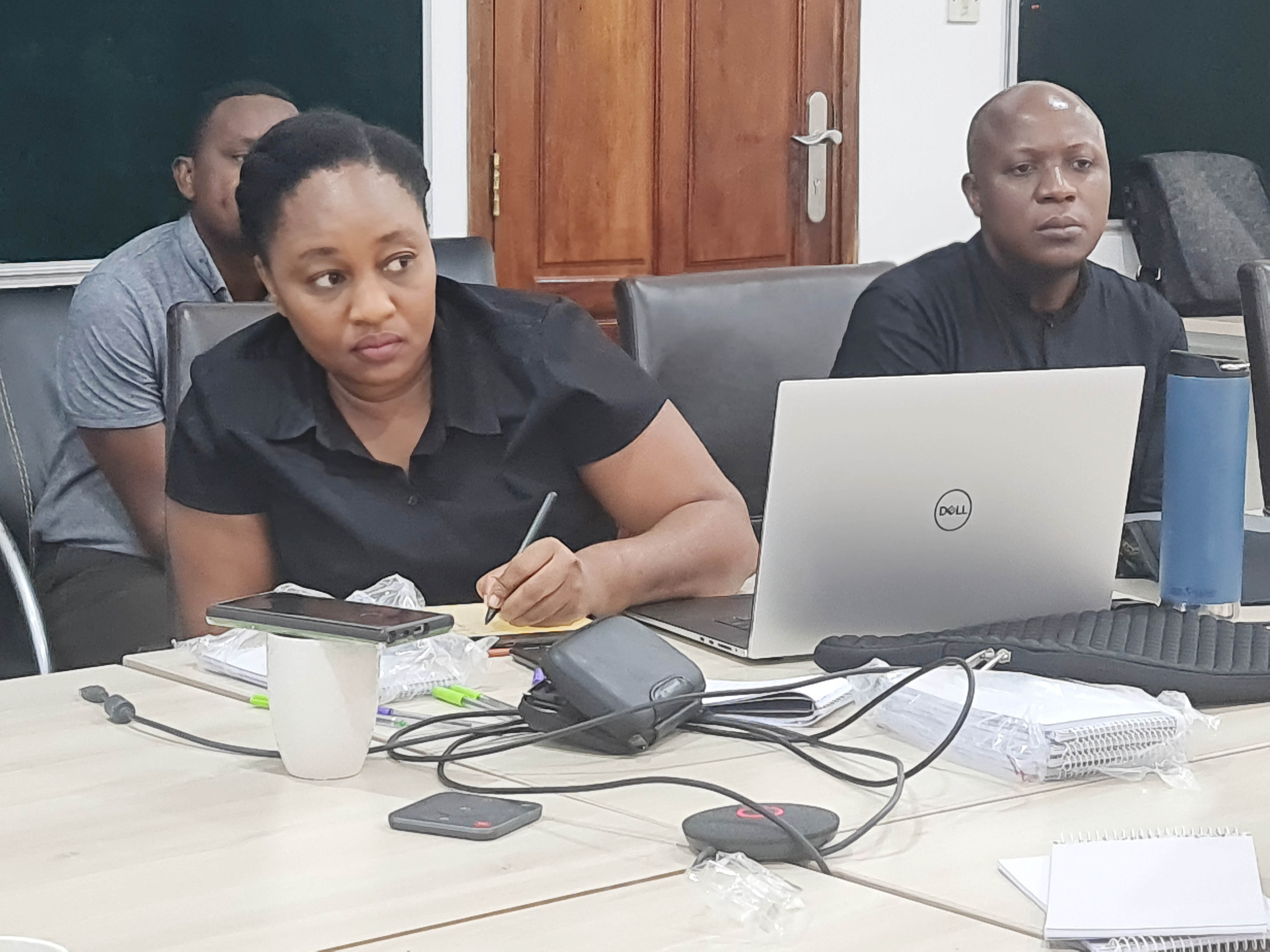
DIALOGUE: Tanzania stakeholders receive, discuss results of engagements on gene drives potential

For three days – May 22-24, 2024 in Dar es Salaam, the Gene Drives research group at Ifakara Health Institute, hosted engagement sessions with a diverse array of public health stakeholders to present the results of the first phase of dialogues and facilitate further conversations on how these new technologies should meet Tanzania's specific needs.
Led by senior researchers at the Ifakara Health Institute, Dr. Marceline Finda and Dr. Sambo Maganga, after hearing the results, the stakeholders engaged in a discussion on the need and feasibility of this new technology to control and ultimately eliminate malaria in Tanzania.
“We firmly believe that our collective perspective will help accelerate efforts to control and eliminate malaria while ensuring the safety and well-being of our people and the environment,” remarked Dr. Maganga.
Stakeholders to hear, comment on the results
The Gene Drives project lead, Dr. Finda, informed that over the past two years, their team had engaged in discussions with various stakeholders representing key decision-making groups across Tanzania. They include religious leaders, youth groups, civil society organizations, and political leaders.
Through these discussions they had with the stakeholders separately, she said, they gathered valuable advice, opinions, and recommendations on the potential of alternative strategies to control and eradicate malaria.
“This time around, we have invited stakeholders to the second round of discussions, bringing together representatives from research and academic institutions, regulatory bodies, government ministries, media groups, malaria control experts, and community representative groups, including community leaders from malaria-prone areas,” Dr. Finda said, adding:
“The stakeholders we’ll get the opportunity to receive the results and engage in a discussion to hear their comments after learning about the results.”
More about gene drives
Gene drives are genetic engineering technologies that enhance the inheritance of specific genes within a population, increasing the likelihood that a particular trait will be passed on to offspring. This mechanism works by bypassing the typical 50% chance of gene inheritance, ensuring that the desired trait spreads rapidly through a population.
Gene drives hold potential for addressing challenges like controlling vector-borne diseases, such as malaria, by spreading genes that render mosquitoes infertile or incapable of transmitting the disease. However, they also raise ecological and ethical concerns due to their potential impact on ecosystems.
More about the gene drives study
Gene drive modified mosquitoes have the potential to address Africa’s persistent malaria problem, but are still in early stages of development and testing. Continuous engagement of African stakeholders is crucial for successful evaluation and implementation of these technologies.
The aim of this multi-country study that Dr. Finda and team are conducting is, therefore, to explore the insights and recommendations of key stakeholders across Africa on the potential of the technology for malaria control and elimination in the continent.
Their work was supported by the GeneConvene Global Collaborative at the Foundation for the National Institutes of Health, through a grant from the Bill & Melinda Gates Foundation.
The study involved 180 stakeholders in 25 countries in sub-Saharan Africa. This was followed by in-depth discussions with selected groups and individuals – with stakeholders drawn from academia, research and regulatory institutions, government ministries of health and environment, media and advocacy groups.
What did the stakeholders say?
Results of this study showed, despite high levels of awareness of the technology among the stakeholders (76.7%), there was a relatively low-level of understanding of their key attributes and potential for malaria control (28.3%). When more information about the technologies was provided to the stakeholders, they readily discussed their insights and concerns.
The stakeholders also offered several recommendations to ensure successful research and implementation of the technology. These included: increasing relevant technical expertise within Africa, generating local evidence on safety, applicability, and effectiveness of the technology, and developing country-specific regulations for safe and effective governance of the technology.
The vast majority of the respondents (92.9%) stated that they would support field trials or implementation of the technology in their respective countries. This study also identified significant misconceptions regarding the phase of the technology testing in Africa.
What did the scientists conclude?
The scientists concluded that incorporating views and recommendations of African stakeholders in the ongoing research and development of the technology in Africa is crucial for instilling stakeholder confidence on their potential application.
“These findings will enable improved planning for GDMMs [the technology] in Africa as well as improved target product profiles for the technologies to maximize their potential for solving Africa’s enduring malaria challenge.”
